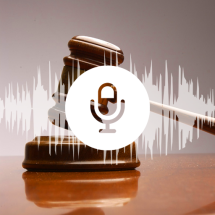As a motorist that was charged with drinking while intoxicated or DWI offense, you have few options to mount a defense of your case. There is some affirmative defense that the defense attorney can explore to make a claim, even when all evidence seems to support the charge against you.
One of the common defenses against a DWI offense is to attack the law enforcement officer’s observation during the process of your arrest or challenge the integrity of the evidence. Another case in point is to attack the accuracy of a breathalyzer test, so you need to have a competent and experienced lawyer to prosecute your case with different facts against you.
AFFIRMATIVE DEFENSES TO DWI CHARGES
- Matter of Necessity: This is when an offender prevents a greater evil by driving while intoxicated. A defendant must prove beyond doubt and show that no other option exists and a greater evil was averted by driving while drunk.
- Under Duress: A situation whereby a defendant drives to avoid severe injury or death is also known as driving under duress. A typical example is using a force or threat of force on an intoxicated person to drive.
- Entrapment: This occurs when an officer of the law encourages a defendant to drive, knowing that he/she is intoxicated or drive while under the influence. As a defendant, you must be able to prove that entrapment was the cause of your driving, and would not have done so usually.
- Defendant’s mistake of fact: A situation whereby an offender has an honest belief that he or she is not intoxicated. A typical example is to believe that the impairing effect of one’s prescription medication has worn off.
- Involuntary intoxication: This happens when a person does not know that he or she has ingested alcohol. An example of this is when the punchbowl at a party was “spiked” with an otherwise indefinite quantity of liquor.
COMMON DEFENSES AGAINST A DRINKING WHILE INTOXICATED OFFENSE
- Improper stopping of vehicle: A common argument used in this situation by a DWI attorney is the claim that the officer lacked a probable cause to make the initial traffic stop.
- The accuracy of field sobriety test: Some cases may result in an arrest ruled improper if based on an improperly administered field sobriety test or inaccurate results. The horizontal gaze nystagmus test, which detects eye movements often associated with intoxication, is frequently challenged by an experienced defense attorney.
- The accuracy of breathalyzer test: A competent attorney may argue a change of results after the administration of breathalyzer test at the scene of an accident. One of the questions he asks is if the officer administering the test is well trained. The defense may also question the calibration and maintenance of the breath test device.
- The accuracy of standard breathalyzer test: A similar defense to the above pertains to the accuracy of breath test devices used at the police station after an arrest is made.
- Blood test chain of custody: This is where the defense attorney raises a question on whether there has been tampering during the administration of blood test or if it has been mishandled in the chain of custody.
- Rise in blood alcohol concentration: The defense can claim that the blood alcohol level of the defendant was below the legal limit and increased between the time of traffic stop and the administration of the breath test. It is not impossible that this situation occurs as research has shown that recently consumed alcohol does not immediately absorb into the body until the time of the BAC test.
POSSIBLE DEFENSES TO BLOOD ALCOHOL LEVEL RESULTS IN TEXAS
All blood alcohol level tests like forensic evidences can be challenged on different grounds. The list below is some of the possible defenses against a DWI case in the state of Texas, as explained by an experienced DWI criminal defense lawyer:
- Blood sample defense
In this situation, a sample of blood is drawn and tested for alcohol content also known as the BAC level. There are two DWI situations in which this can occur: (a) when requested by law enforcement officers that are connected with a suspected drunk driving case, or (b) If the medical personnel attached with the case diagnose and treats a patient that has been brought in after the accident.
- Blood specimen contamination
An experienced defense attorney must be aware and be able to investigate based on the possibility of blood specimen contamination. A case in point is the antiseptic that is used to cleanse the area that may contain alcohol in amounts sufficient to produce measurable amounts of alcohol on a gas chromatograph. In a medical or emergency room, it is routine to use an alcohol-based antiseptic to clean the skin. It may also be routine to use vacutainers and vials that are not in compliance with state regulations and statutes.
- Distinguishing plasma, serum blood, and whole blood
A defense attorney that wants to challenge a blood sample result must be aware of the difference between whole, plasma and serum blood readings. For a blood alcohol test to be admissible as evidence at trial, it will depend on the specific language of the relevant state statute and on the ability of the attorney opposing the test result to identify all the various ways in which the blood test result is unreliable. Although some states have no published regulation on the control of serum or plasma blood readings, they are adjusted to reflect an approximate whole blood alcohol levels.
- Variations in Viro and Vitro blood testing
Some differences can occur in body chemistry plus the chemical changes that the blood undergoes while in the glass ampoules, the blood specimens may become unrepresentative of the person accused. While vivo are those which occurs inside the body, vitro are those which occur while the blood is in glass ampoules. The difference is that changes occur because of normal fluctuations in blood in vivo and not in vitro.
- Medication and disease
The use of certain medication and disease process can affect the level of blood alcohol concentration in the body. A drug that alters the rate of metabolism can affect blood alcohol levels. The human body eliminates the amount of alcohol by oxidation of the “poison” (alcohol) in the liver. Like any other compound that is foreign to the body, alcohol is broken down by enzymes in the liver and gradually reduced until 100 percent eliminated. Therefore, it must be noted that type of disease that affects the liver such as hepatitis, will impair results from a BAC test.





















